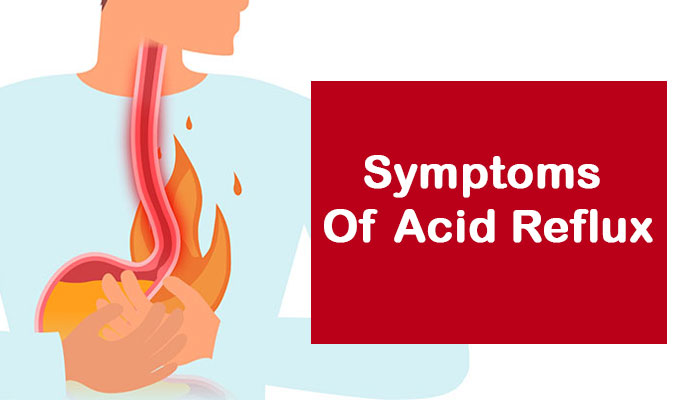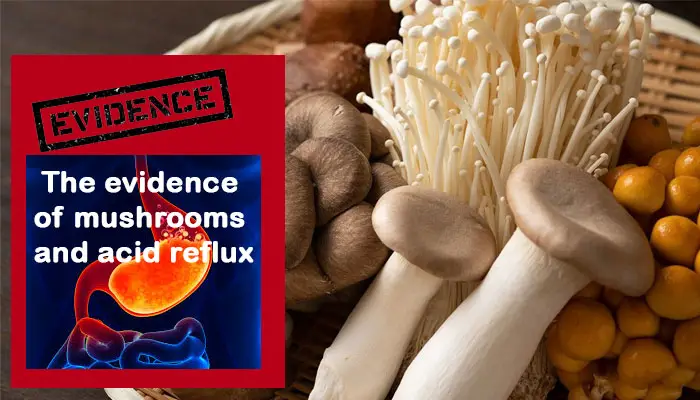Do mushrooms cause acid reflux?
- By Infoik
- 26 Sep, 2022

Do mushrooms cause acid reflux? This is a question that many people are asking these days. Unfortunately, there is a lot of conflicting information about this topic, and it can be hard to know what to believe. In this article, we will explore the evidence on mushrooms and acid reflux and see what conclusions we can draw.

What is acid reflux?
Acid reflux is when stomach acid flows back into the esophagus, causing heartburn and other symptoms. This can happen after you eat, lie down, or bend over. Acid reflux is common, affecting up to one in five people at some point in their lives.
What are the symptoms of acid reflux?

The most common symptom of acid reflux is heartburn, a burning sensation in the chest. Other symptoms include regurgitation, difficulty swallowing, and a bitter taste in the mouth. Some people also experience chest pain, coughing, and wheezing.
What causes acid reflux?
Several things can cause acid reflux, including eating spicy or fatty foods, overeating, lying down after eating, and wearing tight-fitting clothes. In addition, some medical conditions, such as pregnancy, hiatal hernia, and GERD, can also cause acid reflux.
Do mushrooms cause acid reflux?
There is no definitive answer to this question. Some people swear by mushrooms as a natural remedy for acid reflux, while others find that they worsen their symptoms. If you are considering adding mushrooms to your acid reflux diet, it is best to speak with your doctor first.
The evidence of mushrooms and acid reflux
Some people find that mushrooms help relieve their symptoms, while others find that they worsen them. If you are considering adding mushrooms to your acid reflux diet, it is best to speak with your doctor first.

Mushrooms are a type of fungi that are commonly consumed as food. They are low in calories and fat and are a good source of vitamins and minerals. In addition, some people believe that mushrooms can help treat or prevent acid reflux, as they contain compounds that reduce stomach acid.
However, there is no scientific evidence to support this claim. Furthermore, some studies have found that mushrooms can increase stomach acid production. Therefore, it is unclear whether mushrooms are beneficial or harmful for people with acid reflux.
There is no clear evidence that mushrooms cause or relieve acid reflux. If you consider adding mushrooms to your diet, you should speak with your doctor first. Some people find that mushrooms help relieve their symptoms, while others find that they worsen them.
What can you do to prevent or treat acid reflux?
You can do several things to prevent or treat acid reflux, including avoiding trigger foods, eating smaller meals, and avoiding lying down for at least three hours after eating. If these lifestyle changes do not help, you may need medication.
Some tips on preventing or treating acid reflux
- Avoid trigger foods: spicy or fatty, citrus fruits, tomatoes, chocolate, caffeine, and alcohol.
- Eat smaller meals: eat several small meals throughout the day instead of three large meals.
- Avoid lying down for at least three hours after eating.
- Elevate your head while sleeping: prop up your head with pillows, so your head is above your stomach.
- Wear loose-fitting clothes: tight-fitting clothing can pressure your stomach and worsen acid reflux. Wear loose-fitting clothes instead.
If lifestyle changes do not help, you may need to take medication. Many medications can treat acid reflux, including proton pump inhibitors, H-receptor antagonists, and antacids. Your doctor can help you to choose the best medication for you.
List of foods to eat with acid reflux:
You can do many things to prevent or treat acid reflux, including avoiding trigger foods, eating smaller meals, and avoiding lying down for at least three hours after eating. Some trigger foods include spicy or fatty foods, citrus fruits, tomatoes, chocolate, caffeine, and alcohol.
Worst fruits for acid reflux:
Some people find that certain fruits worsen their symptoms, while others are OK with fruit. The worst fruits for acid reflux include citrus fruits, tomatoes, chocolate, and caffeine.
When to see a doctor for acid reflux?
If you are experiencing acid reflux symptoms, you must see your doctor. Acid reflux can signify a more severe condition, such as GERD or a hiatal hernia. Your doctor can diagnose your condition and recommend treatment.
FAQ:
Are mushrooms acidic?
Mushrooms are not acidic. They are considered to be neutral food. However, some people find that they make their acid reflux symptoms worse.
Is mushroom OK for gastritis?
There is no definitive answer to this question. Some people find that mushrooms help relieve their symptoms, while others find that they worsen them.
What foods are most likely to cause acid reflux?
Several things can trigger acid reflux, including spicy or fatty foods, citrus fruits, tomatoes, chocolate, caffeine, and alcohol. Therefore, you may want to avoid these foods if you are prone to acid reflux.
What foods should I avoid with acid reflux?
You can do several things to prevent or treat acid reflux, including avoiding trigger foods, eating smaller meals, and avoiding lying down for at least three hours after eating. Some trigger foods include spicy or fatty foods, citrus fruits, tomatoes, chocolate, caffeine, and alcohol.
What causes gastroesophageal reflux disease?
Gastroesophageal reflux disease (GERD) occurs when stomach acid flows back into the esophagus, causing heartburn symptoms such as chest pain, burning sensation, upset stomach, nausea, vomiting, and difficulty swallowing food. The leading cause of GERD is a hiatal hernia, which is caused by weak abdominal muscles that allow the lower end of the esophagus to slide down into the abdomen. Other factors include obesity, smoking, alcohol consumption, pregnancy, stress, medications, diet, and genetics.
Are grapes bad for acid reflux?
Grapes are not generally considered to be bad for acid reflux. However, some people find that they make their symptoms of reflux worse.
Are potatoes bad for acid reflux?
Potatoes are not generally considered to be bad for acid reflux.
Is mushroom good for gastritis?
Mushrooms are not acidic foods. They are considered to be neutral food.
Final Words:
If you are experiencing acid reflux symptoms, you must see your doctor. Acid reflux can signify a more severe condition, such as GERD or a hiatal hernia. Your doctor can diagnose your condition and recommend treatment. You can do several things to prevent or treat acid reflux, including avoiding trigger foods, eating smaller meals, and avoiding lying down for at least three hours after eating. Some trigger foods include spicy foods or fatty foods, citrus fruits, tomatoes, chocolate, caffeine, and alcohol. If you consider adding mushrooms to your diet, you should speak with your doctor first.












